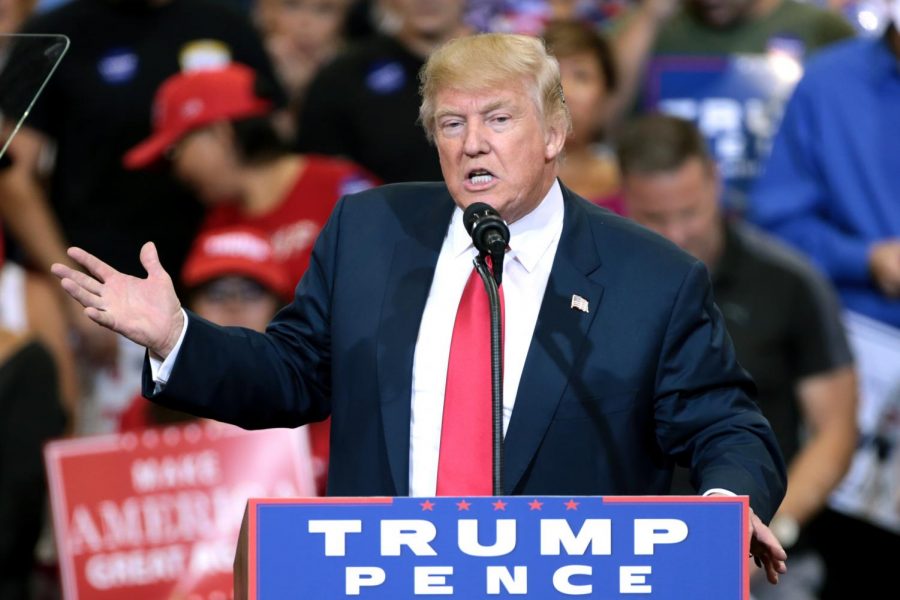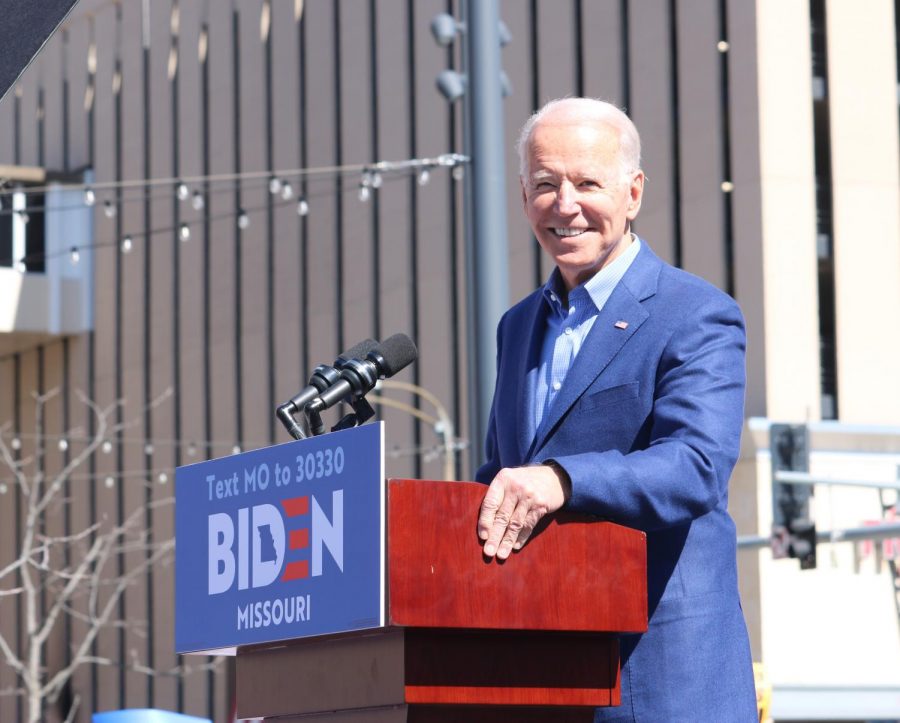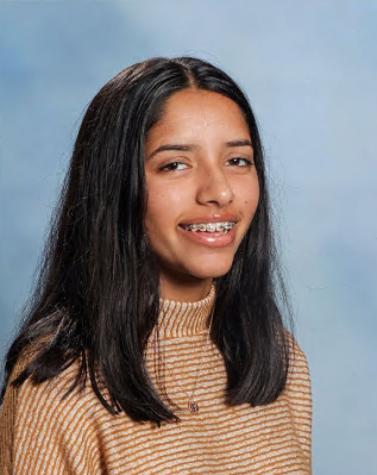A Contentious Election
On November 3, a highly controversial election will take place
Photo: Gage Skidmore (CC BY-SA 2.0)
Donald Trump speaks to supporters at a campaign rally in Phoenix, Arizona.
As Nov. 3 nears, polls open up and voters cast their ballots, University Prep upper schoolers feel the pressures of this election.
Senior Lucas Sherman is phone banking for Arizona Senator Mark Kelly’s campaign and encouraging others to vote since he will not be 18.
“Given all of the crises in our country now, I believe that this is one of the most important contemporary elections,” Sherman said. “Politicians try to say that every election cycle, but it does seem like the stakes are higher this time.”
This year’s presidential election will include Republican nominee President Donald Trump running for his second term and former Vice President Joe Biden representing the Democratic Party. This election is particularly controversial as party lines seem further apart than ever before. Many individuals are criticizing Trump’s leadership over the past four years, especially during the Coronavirus pandemic.
“I think that if Trump is re-elected, we will see more of the creeping authoritarianism that we’ve seen these past four years,” Sherman said. “A lot of what Trump does threatens to damage our democratic system, such as casting doubt upon election results or the deployment of federal agents against protesters in Portland.”
On the left, Biden disappoints progressive Democrats due to his moderate policy ideals, creating the catchphrase “settle for Biden.”
While sophomore Katherine Kang respects Biden’s experience as former vice president, she is most excited about his running mate, Kamala Harris.
“She is very qualified and stands up for women and people of color, which means she really supports all people,” Kang said.
If Biden is elected, Harris will be the first female, Black and Indian-American vice president in U.S. history.
While Sherman does believe that presidential results are very important, he believes the senatorial elections are often overlooked but just as important.
“If Biden wants to enact any of his policy proposals, he’ll need a Democratic controlled senate,” Sherman said. “He has beneficial and broadly supported policy proposals that would help millions of Americans. Specifically, his healthcare plan, which is supported by 68% of Americans, would lower costs for a large majority of the population.”
Kang agrees that the local and statewide elections are just as important considering that local lawmakers are making decisions that impact individuals.
“From the roads, to schools, to transportation, it really isn’t the president making these decisions, it is your state and locally elected officials,” Kang said.
At UPrep, history classes are tackling the election in their classrooms. In the upper school civics class, students will be given an assignment where they must volunteer for a political candidate or organization. Students will, canvas, phone bank and work on digital design for campaigns, among other things. Civics teacher Andrew Schneider hopes that students will gain critical thinking skills and an understanding of the ideals of a functioning democracy.
“As Election Day nears, we will also keep close tabs on any major developments and analyze the presidential debates, campaign advertising, and the ongoing concerns over voter fraud and disenfranchisement,” Schneider said.
Additionally, the civics class adjusted its curriculum to discuss the passing of Supreme Court Justice Ruth Bader Ginsburg and what that means for the election and country.
“We looked back at the failed nomination of Merrick Garland in 2016 and the successful nomination of Brett Kavanaugh in 2018 to gain a better contextual understanding for the debate over what President Trump and GOP senators should do about the vacant seat on the court,” Schneider said.
Schneider tends to share his own opinions on some matters but provides the contrasting view as well so students can see multiple viewpoints and decide where they fall on the spectrum.
“For example, I shared with one section that I disagreed with the GOP’s decision to stonewall Merrick Garland in 2016, but I am undecided about the call some have made for the democrats to ‘pack the court,’” Schneider said.
Overall, Kang is choosing to stay optimistic about this election and believes the most important thing youth can do is to educate and register those who are able to vote.
“We are choosing what our future looks like [and as] people are voting and making their decision on who to elect, they must think about who will be elected to have a seat on the supreme court, and what the future of women’s rights, our economy, gay marriage, social security, immigration and more will look like,” Kang said.
Your donation will support the student journalists of UPrep.



